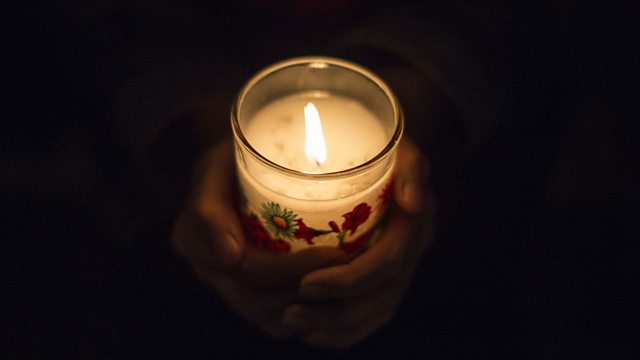Professor Robert Beckford - 14/06/2018
Thought for the Day
A year on from the tragic events at Grenfell tower, we as a nation choose to remember those who lost their lives. And today, across the country vigils, talks and rallies will be held to acknowledge the Grenfell victims. For the last two weeks, their loved ones have spoken poignantly of them; painting pictures of colourful and compassionate individuals. Like Mohamed Neda, who would do anything for his family, Fethia Hassan, who was like a mother to all her classmates, and Gloria Trevisan, described by her neighbours as a ray of light, who tip-toed into their world.
For those of us who had no biological ties to the men, women and children who died in the fire, what does it mean for us to remember them not as 'casualties' or 'victims', but as people who were parents, siblings, co-workers, friends, members of a community?
Christian theologian Miroslav Volf has written extensively on memory. As a Croatian, the Balkan conflict and its bloody aftermath, serves as the backdrop to his work, and his contention that memory is inextricably connected to justice. He suggests that to remember those who have gone before, especially victims of injustice, we must always ‘remember rightly.’ There can never be true or full justice, much less reconciliation, if we try to make the past disappear from history or erase the memory of atrocities.
So, what might it mean to remember Grenfell rightly? Integral to remembering rightly is remembering truthfully. Remembering truthfully is difficult because it requires us to resist the prejudice, (bias) and desire for self-preservation which can often impede the task of discovering the truth.
In the Biblical tradition, healing and reconciliation are the ambitions of right memory. Healing broken relationships is never an easy task, and it is difficult to put a time limit on how long we should continue to remember.
Speaking truth and love to those who have acted unjustly or irresponsibly is not a weakness or capitulation to perpetrators, but a means of ensuring a shared future in which the pain of the past does not confine us to hate and anger but empowers us to obtain justice for the wronged and redemption for the wronged and wrongdoers.
While achieving justice can vindicate victims it cannot bring them back to life. But refusing to forget those who died in the fire, gives life; because it empowers us to transform the present for the sake of future generations.
Duration:
This clip is from
More clips from Thought for the Day
-
![]()
Daniel Greenberg - 14/11/2025
Duration: 02:46
-
![]()
Professor Michael Hurley - 13/11/2025
Duration: 03:05
-
![]()
Rev Roy Jenkins - 12/11/2025
Duration: 03:07
-
![]()
Professor Mona Siddiqui - 11/11/2025
Duration: 02:59






